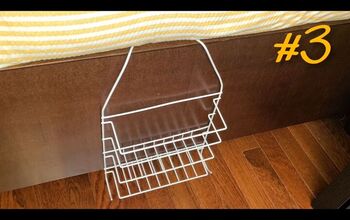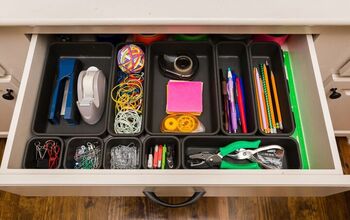10 Important Reasons Why Your Budgeting Doesn't Work

Are you frustrated with budgeting? If you’re wondering why your budget doesn’t work, just know I’ve been there, too. There are reasons why budgeting doesn’t work. But don’t give up! It’s all worth it in the end. I’ll help you tackle the problems with 10 basic budgeting ideas to fix that and get your budget moving in the right direction.
1. Your fixed expenses are too high
If you are house poor there is nothing that you are going to be able to change in your variable expenses to make large leaps in your financial journey. So consider making very drastic changes to your fixed expenses. I promise you, you will not regret it.
2. You don’t have enough money in reserves
If you have a family as large as ours, $1,000 in emergency funds isn’t going to cut it. Consider the size of your family when setting your emergency fund.
For us, we have a $2,000 emergency fund and we have a full month of expenses in our month ahead fund. We also had an emergency fund that had all of our insurance deductibles in it so if we wrecked both cars at once and we had a major disaster in our house, we would have had all of those deductibles at the same time.
3. You aren’t using sinking funds
A sinking fund is a fund that plans ahead for an expense that you know is coming, which can include life insurance, Christmas, school supplies, birthdays–all of those things that come along in a year that end up being large hits to your budget.
Planning ahead for those and saving a little bit every single pay period for those expenses really puts your budget in the right place and you have that money available when you need it without making a major dent in your budget.
4. You aren’t planning ahead
We plan our entire year’s budget in December of the previous year. No, I do not get it down to the penny. But I sit down with my husband and our calendars to plan events and the bulk of our spending for the entire year. Doing this eliminates surprises in our budget.
5. Your budget is too restrictive
If you’re on a debt payoff journey or a savings journey, like we are, it’s tempting to cut out all wants and only focus on your needs. But if you deprive yourself completely of every single want, you will probably rebound. The rebound will probably be a lot larger than if you plan a little bit in your budget every month.
That way, you won’t throw your hands up when the budget gets frustrating and just say you’re going to get yourself something nice. My husband and I get personal money every month to use however we want to. We don’t question each other about how we spend that money.
6. You’re spending way too much money
If you haven’t nailed down budgeting for your wants, you won’t end up saving any money or paying off a lot of debt. Yes, you do need wants, but not too many. If you’re going to make any significant moves in your financial budget, you have to cut out some wants, like cutting your restaurant fund down by half.
I read that if you spend $27 a day on miscellaneous spending, you will waste $10,000 a year. Cutting down your miscellaneous and impulse spending can save your budget.
7. Your partner is not on board
If you’re not single, your partner needs to be on board with the budget. Sometimes a change in vocabulary is all that’s necessary. Tell your partner it’s not a budget but a spending plan. That may make it more palatable and not as restrictive as the word “budget.”
8. You aren’t sticking to your budget
A written budget is only as good as the piece of paper it’s on until you actually do it and follow it.
9. You haven’t set financial goals.
We used to be guilty of this, as well. When we finally set goals, that’s when we made huge strides. We saved $23,000 in seven months as a family of six and on one family income. It sounds crazy, but it’s possible!
If your financial goals are not the same as your partners, then compromise. If you don’t listen to your partner’s wishes, and vice versa, you’ll end up spinning your wheels. Find a happy medium.
10. You can’t move past financial mistakes
If you can’t look past your regrets and past financial mistakes, you won’t be able to move forward. I mean we have done over six figures of stupid things financially in our 17 years of marriage!
I started looking at the positive choices we could make rather than back on the mistakes we made. That shift in thinking propelled us forward. It is easy to wallow in bad choices and get depressed but you have to force yourself to move forward.
Reasons why budgeting doesn't work
Take this list and dig deep to find out why your budget is making you upset. Even if there’s just one thing you’re doing it could be that one reason why your budgeting doesn't work.
Don’t give up, simply adjust things and move forward. I would love to know your thoughts on other stumbling blocks when it comes to sticking to a good monthly budget.





















Comments
Join the conversation
We are number 1 and it's so tight there is nothing =nothing left. No reserve or anything.
i lived on a very tight budget all my like, I am seventy years old now. I fully educated my daughter at Penn State University, helped my sons with their college education locally and still ended up paying off my mortgage 10 years early. My children were never deprived, but i cannot say the same for myself. Even thou at this time of my life i feel fortunate and well off, oddly, I find it verrrry difficult to overspend on myself. Two of my children learned from me, how to manage their finances without being as tight as i was, but my oldest son (45 years old) is unable to manage his affairs without getting in a mess every 6 to 7 years because his wife is very wasteful and does not cooperate nor try to curb expenses. I used to help him with their credit cards bills until i realized that I was paying for his wife very expensive beauty salon monthly trips and a lot more, while my hair trims only cost me $25.00 including tip, four times a year.